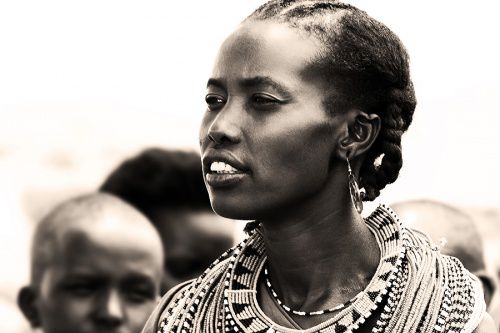In a region fraught with political, ethnic and religious divisions, the Central African Republic's motto of “Unity, Dignity, and Work” can serve as a foundation for healing and progress in Africa's Great Lakes Region, a Vatican representative told the United Nations.
“No solutions to the Region's many problems would be possible if there are divisions instead of unity, grave violations of human rights instead of respecting the dignity of all, and extreme poverty instead of dignified work for all,” Archbishop Bernardito Auza, Permanent Observer of the Holy See to the United Nations, said March 21.
Archbishop Auza's remarks came as part of the U.N. Security Council Debate on “The Prevention and Resolution of Conflicts in the Great Lakes Region.”
Although the Great Lakes Region of Africa — which includes Kenya, Rwanda, Uganda, Tanzania, South Sudan, Burundi, Democratic Republic of Congo, and Central African Republic — is home to rich biodiversity, it's also place of “political instability and bad governance, corruption and extreme poverty, ethnic divisions and exploitative use of the abundant natural resources,” he said.
Pope Francis reflected on Central African Republic's motto during his visit last November, and Archbishop Auza said that the values of “Unity, Dignity, and Work” can serve the entire Great Lakes Region of Africa.
“The Pope sees in this trilogy an expression of the aspirations of each Central African and, indeed, of each of the inhabitants of the Great Lakes Region,” Archbishop Auza said. “My delegation believes that these three values of unity, dignity and work are pillars of any prosperous society and thus could greatly facilitate solutions to the complex of causes of armed conflicts and underdevelopment in the Region.”
He called unity “a cardinal value” that would help build respect for “the plurality of political views and religious beliefs” of an area that is home to different tribes, communities and faiths. On the other hand, recognizing the inherent dignity of all is essential to building up “mutual respect and solidarity.”
In an area plagued by extreme poverty, “(d)ecent work for all would greatly improve the lives of all in the region,” Archbishop Auza said, recalling Pope Francis’ call for all countries of the Great Lakes Region to “improve themselves by wisely exploiting their many resources.”
Unfortunately, the natural resources are “being exploited in favor of a privileged few” rather than for “the common good” as a result of political corruption and armed groups fighting in the area, making these resources seem more like a curse than a blessing.
“Governments and all stakeholders in the Region must be helped to negotiate and deal with the various issues at stake in the most impartial way possible, having in mind only the common good of all the citizens,” he said.
Additionally, the presence of armed forces and terrorist groups fighting in these areas only perpetuates poverty and political instability in the region.
Investments in education and job opportunities must be taken seriously to help prevent the trafficking and recruitment of children by terrorist organizations, he said.
The archbishop recommended offering militants “credible reasons to disarm” and encouraging the international community to “assume a larger role in programs aimed at controlling the legal and illegal arms trade.”
The Holy See’s top priority in all her diplomatic activities, he said, is “preventive action geared toward safeguarding the inviolable dignity of every human person, protecting fundamental human rights, promoting education and health care for all, and fostering the identity of each people.”
Pope Francis is grateful for the work that the international community has been doing and encouraged the continuation of work to “achieve disarmament, prosperity, and sound administration at all levels,” Archbishop Auza said.
Photo credit: www.shutterstock.com

